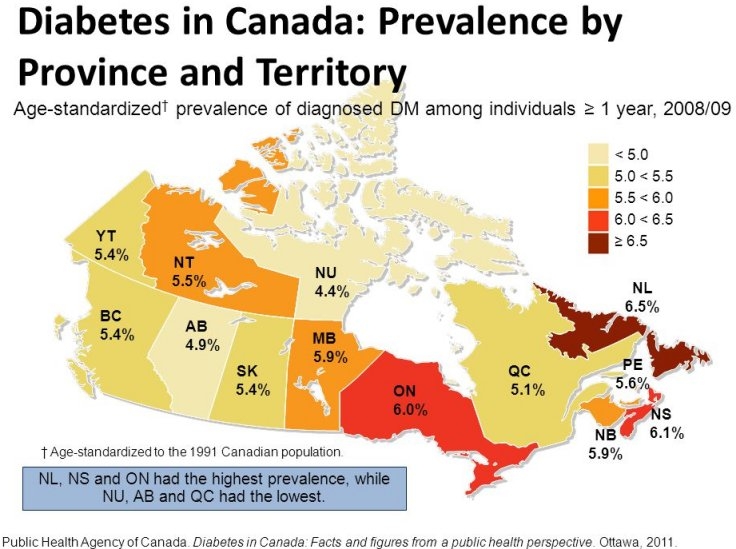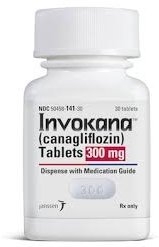Living with diabetes can be a challenge, for the individuals dealing with it every day and the physicians who are responsible for their wellbeing. Often it is adults with Type II diabetes that require the most attention, as many adults newly diagnosed are often set in their ways of living life and are resistant to changes that living with diabetes absolutely requires. It is estimated that about
3.4 million Canadians suffered from diabetes in 2015, with that number expecting to grow to
5 million by the year 2025.
Non-compliance is a physician worst nightmare, not due to any sort of arrogance of course, but in fact the opposite. When physicians watch a patient’s health slowly deteriorate despite the advice and medication they provide, it can be quite frustrating, as their whole job is to promote health, not reduce it. While there are instances where not much can be done for a patient, other times patients just outright refuse to take their prescribed medication as they should, often in a
passive-aggressive manner.

Non-compliance has even reached epidemic proportions as in several studies conducted in the United States have reported, nearly 75% of patients admitted to not always taking their medication as directed, 30% failed to fill new prescriptions, and an estimated 33-69% of drug related adverse events due to poor compliance resulted in hospital admissions; truly humbling numbers indeed.
So why do some diabetic patients refuse to take their medication as prescribed? Well, there are several possibilities, with the most common being side effects. The most commonly prescribed oral medication for Type II diabetes is a drug called
Metformin, while working wonders in helping control a patient’s diabetes, and even having a secondary effect of increased weight loss (for whom Type II diabetics are prone to developing) patients often complain about gastrointestinal upset, in the form of diarrhea, nausea or vomiting, understandably leading to their non-adherence.

Another possible reason is the tedium of taking medications multiple times a day, as is the case for Type II diabetic individuals having exhausted all treatment options leaving them having to resort to daily insulin injection to manage their diabetes. Adults already have a full plate of responsibilities they have to manage, from having a job, to taking care of the family and having yet another thing to take care of can burden even the most responsible of individuals.
Thankfully times are changing for the better, for patients and physicians alike, as drug researchers and manufacturers are well aware of the various shortcomings their drugs may inflict, and have made strides in ameliorating such concerns. The following are
newly developed medications to help battle diabetes that is available now or possibly in the near future.

Introduced to the market in 2014, Invokana has been touted as a new way for treating Type II diabetes. Being a once-daily oral pill, Invokana belongs to a new class of medication called sodium glucose co-transporter 2 inhibitors (SGLT2). It achieves its glucose lowering effects by increasing the amount of
glucose loss in the urine. This method not only helps regulate blood glucose levels but also helps reduce body weight and systolic blood pressure. During clinical studies, significantly improved glycemic control was observed when Invokana is used alone, and when used as an add-on therapy, superior reductions were seen when compared to other medications for diabetes control.
Introduced in 2015, Nesina is a dipeptidyl peptidase-4 inhibitor (DDP-4). Oral tablets taken once daily have demonstrated clinically and statistically significant reductions in blood glucose levels (HbA1C), with a low incidence of hypoglycemia. It works by increasing the amount of
insulin released by the body, as well as decreasing the amount of sugar made. While currently available only to Quebec residents, Health Canada is currently in the works to fully approve this medication for all Canadians.
Being innovative can also be just as effective as creating new and improved pharmaceuticals. Afrezza aims to remedy the displeasure of insulin delivery via needles by replacing them with more convenient insulin delivering inhalers. Helping treat Type I and Type II diabetes Afrezza has been shown to be comparable to more traditionally used medications and works more rapidly in some cases. Afrezza is used much like an asthma inhaler, with the patient taking
deep inhales before meals in this case to achieve the desired insulin level. While currently only approved FDA for U.S. residents it is only a matter of time before this treatment will permeate north, potential helping millions of needle phobic Canadians.

It is important for physicians to talk to their patients about their various options when it comes to diabetes control, as many factors play a role, especially financial. The reason many of the diabetic medications are commonly prescribed is due to their proven track record owing to years of use, as well as their minimal cost, as most of the pharmaceutical patents have expired allowing generic versions of the same drug to be developed with similar effectiveness to flood the market, driving prices down. This is a luxury that newer medications do not have, often making patients pay the price for
the latest and greatest.

 Non-compliance has even reached epidemic proportions as in several studies conducted in the United States have reported, nearly 75% of patients admitted to not always taking their medication as directed, 30% failed to fill new prescriptions, and an estimated 33-69% of drug related adverse events due to poor compliance resulted in hospital admissions; truly humbling numbers indeed.
Non-compliance has even reached epidemic proportions as in several studies conducted in the United States have reported, nearly 75% of patients admitted to not always taking their medication as directed, 30% failed to fill new prescriptions, and an estimated 33-69% of drug related adverse events due to poor compliance resulted in hospital admissions; truly humbling numbers indeed.
 Another possible reason is the tedium of taking medications multiple times a day, as is the case for Type II diabetic individuals having exhausted all treatment options leaving them having to resort to daily insulin injection to manage their diabetes. Adults already have a full plate of responsibilities they have to manage, from having a job, to taking care of the family and having yet another thing to take care of can burden even the most responsible of individuals.
Another possible reason is the tedium of taking medications multiple times a day, as is the case for Type II diabetic individuals having exhausted all treatment options leaving them having to resort to daily insulin injection to manage their diabetes. Adults already have a full plate of responsibilities they have to manage, from having a job, to taking care of the family and having yet another thing to take care of can burden even the most responsible of individuals.

 It is important for physicians to talk to their patients about their various options when it comes to diabetes control, as many factors play a role, especially financial. The reason many of the diabetic medications are commonly prescribed is due to their proven track record owing to years of use, as well as their minimal cost, as most of the pharmaceutical patents have expired allowing generic versions of the same drug to be developed with similar effectiveness to flood the market, driving prices down. This is a luxury that newer medications do not have, often making patients pay the price for the latest and greatest.
It is important for physicians to talk to their patients about their various options when it comes to diabetes control, as many factors play a role, especially financial. The reason many of the diabetic medications are commonly prescribed is due to their proven track record owing to years of use, as well as their minimal cost, as most of the pharmaceutical patents have expired allowing generic versions of the same drug to be developed with similar effectiveness to flood the market, driving prices down. This is a luxury that newer medications do not have, often making patients pay the price for the latest and greatest.